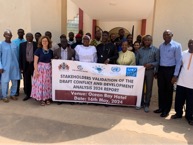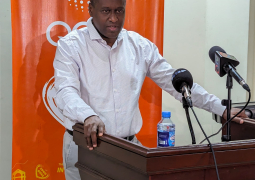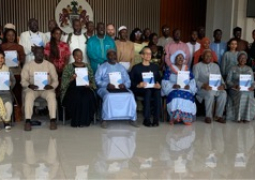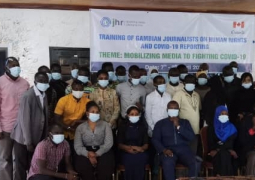
Through extensive research and inclusive consultations, the 2024 Conflict and Development Analysis (CDA) sheds light on the evolving landscape of political, social, economic and security dynamics within the nation.
Spearheaded by collaborative efforts led by the Government of The Gambia in partnership with key stakeholders, the analysis delves deep into the nuances of contemporary issues, actors and regional influences.
With a keen focus on gender dynamics, cultural nuances and environmental risks, the CDA aims to provide a comprehensive framework for fostering peace and resilience in The Gambia.
Salama Njie, WANEP's National Network Coordinator, emphasised the importance of updating The Gambia's Conflict and Development Analysis (CDA) to align peace building efforts with the country's needs and capacities.
Madam Njie highlighted that the analysis will play a pivotal role in identifying programming priorities to strategically tackle emerging peace and security challenges in The Gambia. Additionally, she said the analysis considers relevant regional factors that could influence the Gambian situation.
Madam Njie expressed gratitude to development partners including the UN, World Bank, Ministry of Interior and other stakeholders for their coordination efforts in the 2024 CDA process. She also extended special thanks to the Project Team and consultants for their tireless dedication towards the successful completion of the assignment.
Assan Tangara, permanent secretary at the Ministry of Interior, emphasised that effective conflict prevention requires collaborative efforts from diverse groups, agencies and sectors.
He added that adopting a multi-stakeholder approach is essential to harness the resources, expertise and perspectives of various stakeholders. “Such an approach fosters political will, collective capacities and a shared sense of ownership, crucial for preventing conflicts and fostering lasting peace,” he stated.




